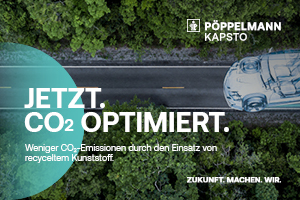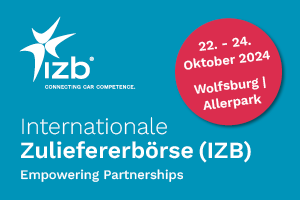By Dr.-Ing. Olaf Sauer, Automation Division / Deputy of the Institute Director
Fraunhofer Institute for Optronics, Systems Engineering and Image Exploitation (IOSB) and Dr. Sebastian Ritz, CEO of German Edge Cloud, a newly founded company within the Friedhelm Loh Group.
The industrial Internet of Things (IIoT) provides added value to enterprises by collecting and processing data about machines, means of transport or stocks, for example. This enables organizations to improve business processes or to develop new business models. The increasing interconnection between systems, equipment and sensors will result in a growing amount of data produced and exchanged inside and outside an enterprise in the future. IIoT applications will then process this data further, thus adding value.
As a current study [1] has shown, the majority of industrial enterprises is actively pushing forward the implementation of IIoT initiatives. Most enterprises recognize IIoT as an enabler of digital transformation. However, a number of the respondents is still struggling with the implementation. They often find it hard to get started with IIoT projects and subsequently realize them in a profitable way. Reasons include security concerns, high complexity and challenges in adhering to budgets. Nevertheless, enterprises are anything but discouraged by these challenges, as three quarters of the companies are planning to implement an IIoT project in the twelve months to come. To succeed, the organizations should take current technological trends into account, as the developments in IoT platforms, edge computing, artificial intelligence, machine learning and security are very dynamic and provide a variety of opportunities to enterprises. In addition, the mobile providers operating in Germany have started the nationwide establishment of their 5G networks. The IIoT-friendly application profiles of the new mobile communications standard will render some use cases for Industrial IoT more attractive.
To enable meaningful analyses, the end devices have to be networked in a secure way, data from end devices and other sources have to be collected and merged into a joint data record and subsequently be prepared for the analysis. These tasks are performed by IIoT platforms; they provide several advantages to manufacturing enterprises, which deploy a particular large variety of end devices and sensors using multiple standards and protocols. More and more enterprises realize that IIoT platforms simplify the management of IoT environments, as 30 percent are of organizations are using them already and another 55 percent are planning to use them.
A central IoT platform is not always the right place to process the data. Sometimes, the transaction time is too long for the intended purpose, in other enterprises, an unstable internet connection prevents external data processing or compliance provisions do not allow for data processing outside the enterprise network. For these scenarios, edge computing provides a useful complementation or alternative to core or cloud processing. For example, 12 percent of the respondent enterprises across all industries were using edge computing at the end of 2018, with the rate being considerably higher in Germany, amounting to 24 percent according to the current study. Thus, industry in Germany shows that “time to value“ is of considerable importance, which can be reduced by transferring the data analysis to the place where the data originated. Thus, the significant acceleration in transactions or even real-time processing are the major driver for more than one third of the enterprise. Another benefit of edge computing is that the potentially large amounts of data do not have to leave the organization, reducing the costs compared to the analysis in the cloud and releasing capacities for other analyses in the company’s own data center.
The German Edge Cloud, a newly established company belonging to the Friedhelm Loh group, has installed an intelligent edge, the GEC Edge ITaaS platform, for several customers already. This platform is collecting the data points of all machines, PLCs and MES systems right on the shop floor, that means from various automatic welding machines, conveyor belts, driverless transport vehicles or other production equipment.
The data is used to generate clearly structured dashboards for the purpose of an end-to-end visualization of the processes. This allows users to realize and remove bottlenecks, errors or other anomalies in the process immediately. This data basis forms the basis of approaches combining machine learning (ML) and artificial intelligence (AI). To this end, noise, temperature and vibration sensor data is collected at the production system so as to be able to assess the state of the relevant equipment and consequently the required maintenance measures by means of relevant patterns identified by AI.
The German Edge Cloud is playing a decisive role in GAIIA-X, a project in which experts from leading cloud, hardware and software companies complement each other with their experience and expertise. The overall objective is to ensure freedom of choice and the right of participation – also called data sovereignty. It is about generating new data value chains about existing and new offers and service providers. This means that today’s business models far are enhanced. It is essential for Europe to win this race. GAIA-X is one manifestation of the new economic age. This is why it is both responsible and thrilling for a company to be able to develop new ideas in cooperation with Fraunhofer. It is essential for German industry to grasp the opportunities associated with IIoT technologies that go beyond optimization and cost efficiency. To this end, industrial enterprises should start to regard IoT as a business issue which opens up new business models. This is how the German economy can defend and enhance its competitive edge in the world.
[1] IDC: Industrial IoT in Deutschland 2019/20.






